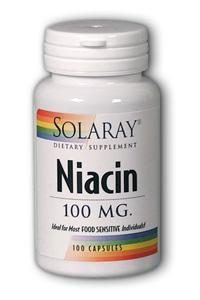In the quest to get healthier, many people have turned to taking vitamin supplements to help them out. There’s no mystery to why people are using vitamins at all; physicians are constantly telling their patients just how important vitamin supplements are to optimal health.
As is usually the case with the medical industry, only part of the truth is being revealed. Yes, it is critical for people to take in the right amounts of healthy, natural vitamins and minerals, but synthetic vitamins are not the way that people should be acquiring these essential nutrients.
The Ugly Truth
The way that physicians and the supplement industry keep people buying a steady supply of synthetically produced vitamins is a very disturbing cycle that everyone needs to get out of as soon as possible if they are concerned about their health. The B Vitamin family, for example, is routinely sold in its synthetic form. Instead of being a benefit to the body, these types of B vitamins are a hindrance to good health.
The labeling that these products use is even more misleading. They will list their B Vitamin products as containing, simply “folic acid,” almost as if this is something positive. What many people don’t realize, though, is that most folic acid is nothing more than another engineered, isolated vitamin product that is anything but naturally produced. Folic acid can be good for you, but only if it is natural, Folinic acid; 5-methyl tetrahydrofolate, per the listing below.
Try These Instead
If you’re interested in taking B vitamins in their natural, beneficial form, you must stay away from synthetic vitamins, but what types of B vitamins should you take? Look for vitamin supplements that contain “active B vitamins,” these are B vitamins in their “natural state,” and these are the B vitamins that are going to promote good health for you.

Here is a short listing of the active B vitamins you should be on the lookout for:
- Cobalamin (B12): Methylcobalamin; Adenosylcobalamin
- Choline: Phosphatidyl Choline
- Folic acid: Folinic acid; 5-methyl tetrahydrofolate
- Niacin (B3): Nicotinamide (adenine dinucleotide)
- Pantothenic acid (B5): Pantethine
- Pyridoxine (B6): Pyridoxal-5-phosphate
- Riboflavin (B2): Riboflavin-5-phosphate; Flavin mononucleotide (FMN)
- Thiamine (B1): Thiamine pyrophosphate; Thiamine triphosphate
- Riboflavin (B2): Riboflavin-5-phosphate; Flavin mononucleotide (FMN)
Like other vitamins, the B Vitamin family relies on the right cofactors (other vitamins, minerals & nutrients) to give them their beneficial power. When synthetic vitamins are artificially produced in the laboratory, they are often isolated and kept apart from these co-factors. This is just one reason that the synthetic forms are not good for your health. You end up loading your system with engineered vitamins that are doing your body no good. When you factor in the extremely high doses that most of these products deliver, it’s easy to see how unhealthy levels of synthetic B vitamins can accumulate in the body and cause more harm to consumers than good.
Do your best to consume vitamins in their natural, whole food state, but when you aren’t able to, make sure that you look for, and take, only the active B vitamins discussed earlier. They are the vitamins your body needs for good health and lasting energy.
Related Products


Leave a Reply